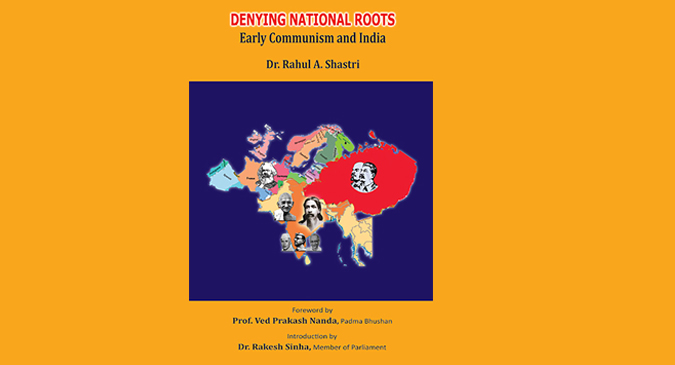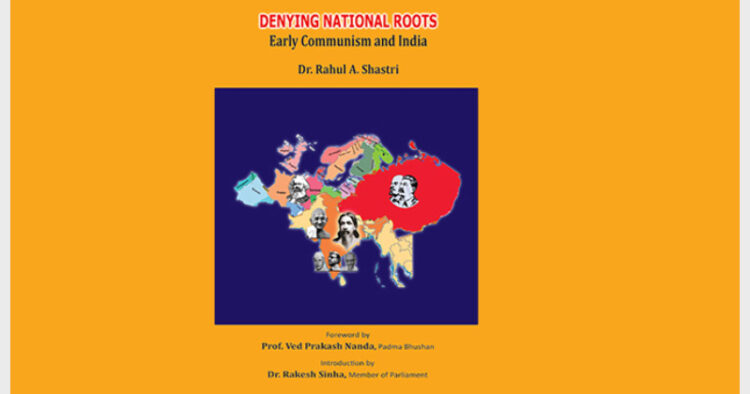Denying National Roots tells its readers how Communism failed to establish itself in India, continues to remain futile and why it does not resonate among the people. The book also talks about how prominent leaders in the country dealt with communism in the early days of the freedom struggle
Denying National Roots – Early Communism and India by Dr. Rahul A. Shastri, Published by Centre for Integral Research, Samvit Kendra, Hyderabad Pages: 200, Price: Rs 250.00
Sundeep Raikhelkar
Dr. Rahul A. Shastri’s book “Denying National Roots” is meticulasly factual and impeccable with referencible citations. The book begins with debunking the communism in India, but when finished the reader is left with a feeling of witnessing a total annihilation of communism in India and elsewhere.

The title of the book is aptly justified, although the book presents numerous other invaluable ideas. We Indians may be diverse in outlook, but are deeply connected by our deeply rooted culture. The book explains why and how the communism in India tried and continues in its attempt to obliterate our culture. The evidence to this fact is presented in the book as even the politicos whom certain people fondly refer to as Bapu and Chacha, were never convinced that such methods of denying national roots would ever work here.
The book presents a clear perspective on how Indian spiritual leaders like Swami Vivekananda and Sri Aurobindo were not impressed with communism. Clearly, for a superior civilisation like ours which has offered to the world with great concepts like Janapadas and the Artha Sastra, communism has very little to offer in itself. The spiritual leaders expressed the same in their composed tone as communism to be mischievous and motivated.
The book presents a good answer to why the present communists in India have multiple political parties. Is there any ideological difference between CPI and CPI(M)? The blame clearly is not on the so called ideology, but the leash that each party would inflict upon itself. CPI continued to court favour with the Russian group of Comintern (communism international), while the CPI(M) moved on to courting favours with their Chinese counterparts.
The book describes the whimsical and vindictive nature of Comintern. Some of the Indian communist leaders who were officially invited, were humiliated, jailed, tortured and even executed in erstwhile USSR for not towing the official line of communism as per the Comintern. For the Comintern the whole aim was international communism (with Russia as epicenter) while opportunistically using nationalism or regionalism to achieve the revolutionary (read as anarchy) means. The effects of this is seen even today in India as Communists or their Sympathizers like Arundhati Roy encourage militancy in Kashmir.
The effect of Comintern on Indian communist leaders was such that even the Indian Communist Party (ICP) formed out of ideological inspiration from Marxists was forcefully usurped and renamed to Communist Party of India to meet the international naming standards inline with CPSU, CPGB and CPUSA
The author also explains the genesis of socialist thoughts in our first prime minister which in itself became the ideology for next prime ministers to come. The author goes further to explain how Gandhi played along with Communists in congress and kept them at bay from taking over the congress.
The Author, Dr, Rahul presents a good insight on the role played by SC Bose in Indian congress and outside and how he kept himself away from any ideological shift towards communism while keeping nationalism as paramount.
The author leaves the reader with further thought provoking questions – how did so many young impressionable minds fall prey to such brainwash? Was it because of prevalent conditions and ongoing reforms in Hindu society? Was it the effect of Macaulay system of education?














Comments